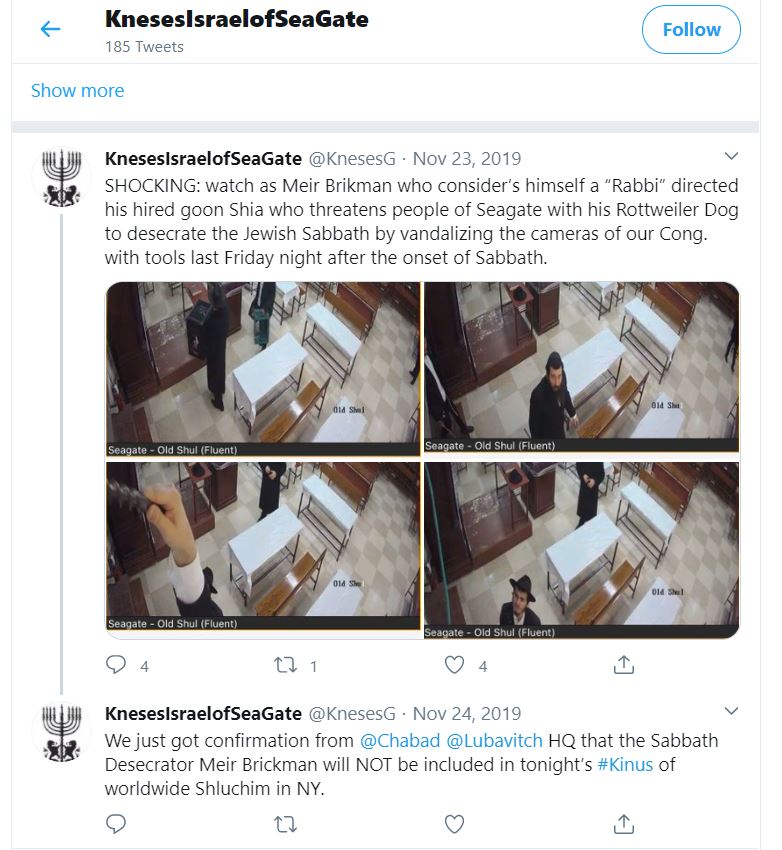Twitter Isn’t Liable for Defamatory Impersonation Account–Brikman v. Twitter
 This is a pro se lawsuit, which explains why the plaintiffs tried obviously doomed arguments that (I hope) no attorney would make in 2020. The plaintiffs are affiliated with a Brooklyn synagogue, Kneses Israel of Seagate. Someone created a Twitter account, @KnesesG, and allegedly defamed the synagogue and affiliated parties (see, e.g., image below). The plaintiffs notified Twitter, which allegedly did nothing. The plaintiffs sued Twitter for defamation.
This is a pro se lawsuit, which explains why the plaintiffs tried obviously doomed arguments that (I hope) no attorney would make in 2020. The plaintiffs are affiliated with a Brooklyn synagogue, Kneses Israel of Seagate. Someone created a Twitter account, @KnesesG, and allegedly defamed the synagogue and affiliated parties (see, e.g., image below). The plaintiffs notified Twitter, which allegedly did nothing. The plaintiffs sued Twitter for defamation.
The court says simply that “Plaintiffs’ defamation claims against Twitter are foreclosed by the CDA” because:
- ICS provider: “Twitter is an online platform that allows multiple users to access and share the content hosted on its servers.” Cites to Dehen v. Doe, Mezey v. Twitter, Fields v. Twitter, AFDI v. Lynch, Mosha v. Yandex, Ricci v. Teamsters.
- Third Party Content: The claim is based on the KnesesG account, and the plaintiffs didn’t allege that Twitter created or developed that content.
- Publisher/Speaker Claim: “Plaintiffs allege that Twitter has ‘allowed and helped’ @KnesesG to defame plaintiffs by hosting its tweets on its platform, or by refusing to remove those tweets when plaintiffs reported them….Making information public and distributing it to interested parties are quintessential acts of publishing.”
The plaintiffs sought to amend the complaint to add a false advertising claim based on Twitter’s rules. The court says that would be futile because the rules expressly preserve Twitter’s editorial discretion, so they aren’t false. For the same reason, the Twitter rules don’t support a promissory estoppel claim. Finally, a federal stalking claim is futile because it doesn’t provide a private right of action.
Case citation: Brikman v. Twitter, Inc., 2020 WL 5594637 (E.D.N.Y. Sept. 17, 2020). The complaint.


Pingback: News of the Week; September 23, 2020 – Communications Law at Allard Hall()